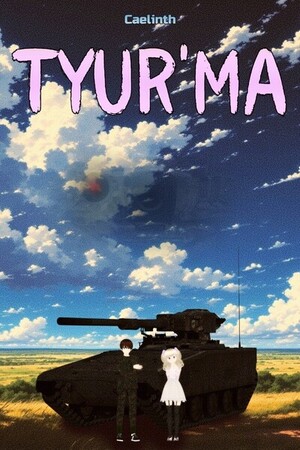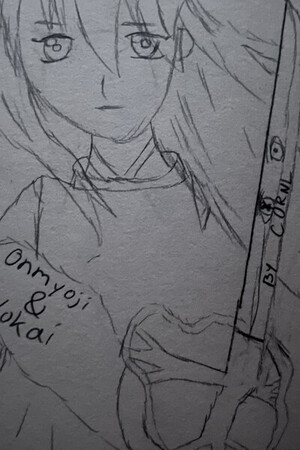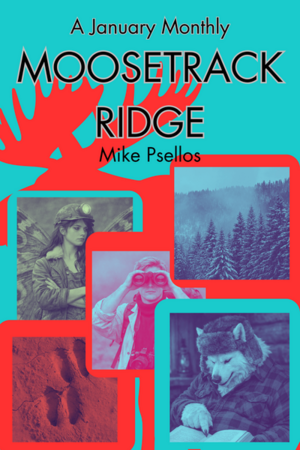Chapter 0:
CH. 1
THE FINAL VOTE
All I ever wanted was to feel significant . To be recognized, acknowledged, and treated like I mattered. It wasn’t much—just a little validation, a sign that I existed, that I was worthy of admiration. I longed for someone to look at me and say, “You are significant. You belong.”
Growing up, I was always drawn to sports. There was something captivating about how sports mirrored society. On the field, players poured their heart and soul into every game, giving 110%. But there were only a few players who stood out in ways that seemed almost otherworldly. They weren’t just good at what they did; they seemed to carry the weight of the world on their shoulders. Everything around them revolved around them—people talked about them, the media fawned over them, and the fans screamed their names.
I often found myself asking, What made them different? What did they have that I didn’t?
I didn’t have an answer, and my questions lingered like an itch I couldn’t scratch. As I pondered this, a newspaper unexpectedly hit me in the face, tossed by the delivery boy who didn’t seem to notice my existence.
I shook my head, clearing away the distraction, and got ready for school. As I flipped through the sports section of the newspaper, I saw an image that made me pause. It was of Ronaldo and Messi, two of the greatest football players in history, watching the World Cup with the iconic trophy between them. The advertisement was for the upcoming 2026 World Cup.
I squinted at the image. These two players, while legends, were well past their prime. They were no longer the best in the world, yet here they were, front and center, as if they were still the faces of the sport.
I couldn’t understand it. I was used to seeing their names in the World Cup promotions, but this? Now? It didn’t make sense. Why are they still in the spotlight when they’re not even at the top anymore?
I tucked the paper under my arm, grabbed my bag, and headed to school, my mind still buzzing with questions.
When I entered the classroom, I made my way to my usual seat. The middle bench. It wasn’t the first or the last, nor was it near the window or the wall. It was right in the center, a place that felt like the seat of a side character. The quiet observer.
At first, I told myself it didn’t matter. The middle seat was strategic, after all. It was the safest place, right? But deep down, I knew better. The most coveted seat in the class, the one that screamed "main character," was by the window, at the back. It was the seat where the important people sat. And there I was, stuck in the middle—just another face in the crowd.
But don’t get me wrong. I wasn’t the typical loner. I had friends, lots of them, actually. I was friends with everyone in the class—from the quiet kids to the popular ones. It seemed like I could fit in anywhere. But despite my connections, there was always a strange distance between me and everyone else. I was always the fourth person in every trio, never the center of attention. I was accepted, sure, but never truly included.
It felt like I was standing on the edge of something, watching others live their lives while I just observed. The loneliness hung over me like a dark cloud. No matter how hard I tried, I couldn’t shake the feeling that I didn’t belong. I was part of every group, but never really part of anyone.
The days passed by in a blur. I continued my routine of making people laugh, trying to fit in, but nothing ever changed. I was the guy who always had a joke to tell, but no one seemed to care enough to ask how I was really doing. They smiled at my jokes, but I could never shake the feeling that I was just a background character in their stories. I longed to be part of something real, something that meant more.
And then, February 18th arrived.
I woke up to a tremor beneath me, something that made my bed shake just a little too violently. At first, I thought it was nothing, just another small aftershock from a past quake. But then the tremor grew stronger. My heart raced as I scrambled out of bed, grabbing for the TV remote, but it didn’t work. The screen was filled with static, and no matter how much I tried to adjust it, the picture refused to clear.
Panicking, I turned on the stereo, trying to get some information. After what felt like an eternity of crackling static, a voice finally came through:
“Tremors have been felt worldwide. The epicenter remains unclear, but authorities are advising people to remain alert. More aftershocks are expected. Please stay tuned for further updates.”
Just as the announcement finished, the ground beneath me shook again. This time, it was stronger, more violent. I rushed to the window, my heart pounding in my chest. The streets outside were splitting open, cracks forming like veins in the earth. Buildings swayed, and debris fell from the rooftops. The noise was deafening, a cacophony of chaos and destruction.
It felt like the world was unraveling.
My parents rushed into the room, grabbing me and pulling me beneath my study table, the only place that felt safe at that moment. The world outside seemed to be collapsing, and the quiet terror that gripped me was almost worse than the shaking itself. For the next few minutes, all I could hear was the rumbling of the earth and the frantic voices of my parents as they tried to keep me safe.
By the time the tremors stopped, the world had changed. The house was in ruins. The television that had been my only link to the outside world was lying face down on the floor. I tried to turn on the radio, but every station was either dead air or full of static. The only thing I could hear was the calm, almost haunting voice of the news announcer:
“Aftershocks continue to rock the world. Please stay alert and follow all emergency procedures.”
The night that followed was strange. It was summer, but the air felt cold. It was a stillness that felt wrong, like the earth was holding its breath, waiting for something else to happen. My parents couldn’t provide any answers, and neither could anyone else.
The next morning, things hadn’t gotten much better. It was a holiday, but there was no joy in it. The world seemed to have paused, and people didn’t know what to do. Governments across the world held emergency meetings, trying to understand what had just happened. But there were no answers. The scientists were baffled, unable to explain the source of the tremors.
As days turned into weeks, the aftermath of the earthquake weighed heavily on me. It wasn’t just the physical destruction that haunted me, but the feeling of fragility it instilled in my soul. People went back to their routines, their lives, but I couldn’t shake the unease. Every tremor, every slight vibration in the earth beneath me, made my heart race. I kept replaying the events in my mind, asking myself over and over again: Why did this happen? And why did I feel so much more connected to the chaos, like I was caught in the epicenter of something far larger than I could comprehend?
As the days passed, rumors began circulating. Some said it was an alien invasion, others speculated about underground nuclear wars between countries. The most popular theory, however, was that Elon Musk had orchestrated the tremors to create fear and push his SpaceX project forward. The idea was that fear would drive people to fund his mission to colonize Mars, which, of course, would be reserved for the rich elite.
I didn’t know what to believe. All I knew was that the world was different now, and no one seemed to have any answers.
Then, something strange happened. The UN announced a joint effort to investigate the quakes. Every country was instructed to form a team of geological experts, regardless of their political beliefs or alliances. It felt like the world was coming together in a way it hadn’t in years. For the first time, it seemed like we were all in this together.
The committee, which was called GeoRIA (Geological Representing International Association), got to work immediately. Within a week, they discovered that the epicenter of the tremors was located near Sao Tome, a small island in the middle of the Atlantic. The island was barely known, hidden in the vastness of the ocean.
The team learned that Sao Tome was located at the equator, the very center of the earth. And for reasons no one could yet explain, it had become the focal point of the disaster.
The earthquake that had struck had been a massive 15.7 on the Richter scale—a level of destruction that had never been seen before. It was almost impossible to believe. But the evidence was undeniable.
As more information came in, photos of the island’s submerged ruins began to surface. It was clear that the island had been home to countless species that no one had ever documented, species that were now likely lost forever. The thought of entire ecosystems disappearing without anyone ever understanding them felt like a tragedy that couldn’t be undone.
GeoRIA published its report, stating that it was unlikely another quake of such magnitude would occur again. They promised to continue monitoring the situation, utilizing the latest technology to study the earth’s tectonic plates and better understand what had happened.
The world began to recover. Life returned to normal. Markets reopened, schools resumed, and the global panic started to subside. But for me, something had changed. The earthquake had shown me how fragile our world really was, how quickly everything could unravel. It made me question the very nature of existence.
Summer arrived, bringing with it the usual distractions. The heat, the mangoes, the ice cream, the endless festivals—it was a time to escape. And for a while, I did.
But then something happened that I couldn’t ignore.
Jonah, one of my friends, had learned how to access the dark web through his older brother’s guidance. We were all intrigued. We had heard rumors about the dark web, but we’d never dared to explore it ourselves. Jonah was our guide, and we followed him into the digital underworld.
It was easy at first—just a few clicks, and there we were, navigating through a world of unfiltered content. But then, we found it. The video.
It was from February 20th, just days before the tremors had started. The three men in the video were Australians, based on their accents. They were near the beach, walking toward a crash site.
“Chris! What are you doing, mate? Get over here! Did you see that?” one of them shouted. “I think I saw a plane crash. Let’s go check it out!”
They approached the crash site, but then, the earthquake struck again. The video became shaky, chaotic. The air around them started to turn an eerie shade of green, and their voices became disjointed, their words incomprehensible. Then, we saw it. A figure, something... unnatural. It appeared only for a second. But it was enough to make my blood run cold. I rewound the video, trying to get a better look, but it was gone. Suddenly, the three men collapsed, choking and gasping for air. The video was cut off. At first, we thought it was a hoax. But something about it felt... wrong. The eeriness lingered long after the screen went black.
I couldn’t shake the image of those men, or the strange figure that had appeared. Something told me that there was more to this than just a strange video. That night, I couldn’t sleep. My mind raced. Who posted this? Where did it come from?
I had to know.



Please sign in to leave a comment.